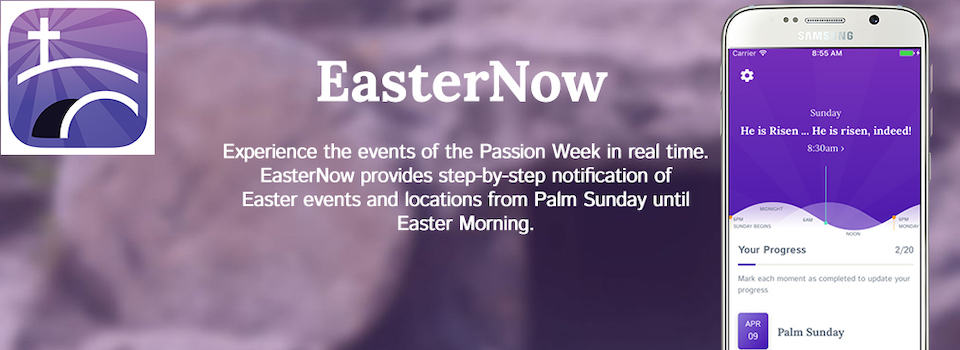Chances are, your pastor is exhausted. Here are the surprising reasons why.
There’s something that church leaders need to know. If you serve on a church board or leadership council, please lean in. Pastor, if you’re reading this, please forward it to your key leaders. There’s a pastoral crisis in the making and it’s taking churches by surprise.
Everyone is tired in these unprecedented times—recently a friend of mine said he was looking forward to some precedented times! We all know what it’s like to shelter-in-place, support on-line school for our children, telecommute, and attend weddings & funerals via Facebook Live. Your pastor carries an emotional backpack of burdens you probably don’t know about.
When I was a teenager growing up in the Pacific Northwest, I’d go backpacking for a week or more with my friends. We’d load up our packs and hike from one campsite to another through the stunning beauty and steep mountain trails of the North Cascades. Sometimes as a prank, one of us would secretly slip a few rocks into the bottom of a friend’s backpack before we broke camp in the morning. The poor victim would arrive at the next campsite that evening and realize that they had carried extra rocks up two or three thousand feet during the day. We all quickly learned to check our packs before we headed out each morning!
In my consulting work with churches and staff, I’ve learned that pastors carry a number of hidden rocks in their emotional backpacks these days. Often pastors don’t even know they are there, but their weight is very real. More and more pastors are telling me that they are circling the drain emotionally. They confide that they are struggling with depression, anxiety, and exhaustion. They are on the edge of burnout. Why? Some reasons anyone who is leading a business or organization in 2020 can understand. Other challenges are unique to pastors.
Emotional Rocks that Leaders Carry
Like any other organizational leader, pastors have had to reinvent how they run their organization (church) at least four times since March. This includes going on-line, meeting outdoors, drive-in gatherings, socially-distanced gatherings, Zoom small groups, etc. And, of course, the requirements sometimes change weekly! In addition to Covid, the tragic death of George Floyd in July set off a firestorm that required organizations to take stands on racial issues, which presented its own challenges. Like other businesses and organizations, churches have had to face budget and staffing uncertainty.
We’ve all had favorite restaurants, gyms, salons, and clubs announce they are closing their doors for good. Pastors likewise have had to release staff and shutter ministries. After initial enthusiasm for on-line church during March and April, churches have seen waning interest in on-line ministry, and attendance at in-person gatherings is down by half. Natural disasters, from fires in the West to hurricanes in the South, have impacted both church and businesses alike. Finally, you may have noticed that this is an election year, complete with impeachment, national campaigns, a controversial supreme court placement, and election uncertainty. Political emotions are running high.
One joke circulating the internet states: A man walks into a bar in Miami and orders a Corona and three Hurricanes. The bartender says, ‘That’ll be 2020.’
Hidden Emotional Rocks that Pastors Carry
But there are some unique challenges pastors face. These rocks have become increasingly heavy in the midst of this challenging year—and they are exhausting.
The Rock of Providing Biblical Moral Clarity
Pastors are called to speak Scriptural truth, delivered in love, regardless of criticism or popularity. Paul’s words to his young protégé in 2 Timothy 2:15 ring in pastors’ ears during times of moral ambiguity: Do your best to present yourself to God as one approved, a worker who has no need to be ashamed, rightly dividing the word of truth.
When people are pulled by vitriolic opinions from social media, cable news, co-workers, and friends, they need to clearly hear God’s perspective on an issue. Speaking truth in love can be unpopular among the people who pay your salary through contributions! Clearly stating God’s Word these days takes thought, clarity, and plain old guts on the part of a pastor. Your pastor does it knowing that they will likely get emails, phone calls, and an extra board meeting or two.
The Rock of Leading the Flock
Pastors are responsible to the Chief Shepherd for the spiritual welfare and direction of their flock. Hebrews 13:17 states: Obey your leaders and submit to them, for they are keeping watch over your souls, as those who will give an account. Let them do this with joy and not with groaning for that would be of no advantage to you.
Leading can be lonely, even in the best relational contexts. In most cases, the buck stops on the pastor’s desk. Pastors feel the weight of the spiritual welfare of their flock and know that they will give account to God for how they handle their stewardship.
The Rock of Caring for the Church Family
No matter the size of the church, every pastor is concerned about the well-being of the people under his care. Each of us knows what it feels like to care for family members these days. How are their jobs going? Are they staying healthy? What voices are they listening to? How are they doing emotionally? Are they connecting with friends?
Pastors ask the same questions and feel the same way about the people in their churches. In larger churches most hands-on care falls to staff or group leaders. But pastors lay awake at night praying for church members who are suffering while sheltering in place. Church members have lost their jobs, lost their businesses, lost loved ones to Covid, are battling relentless depression, substance abuse, and the list goes on.
Acts 20:28 says to church leaders: Pay careful attention to yourselves and to all the flock, in which the Holy Spirit has made you overseers, to care for the church of God, which he obtained with his own blood. For senior pastors, they also labor under the knowledge that they might have to release staff—precious members of their flock. And in a church, when you release staff, you release your friends, and in some ways, their whole family, often without access to unemployment benefits.
The Rock of Being an Example of Faith and Hope
Fortunately, the days of a pastor being perfect rather than authentic are mostly behind us. Pastors still feel the need to model for their flock an authentic spiritual life in the midst of crisis and uncertainty.
Some of this is good, as Hebrews 13:7 states: Remember your leaders, who spoke to you the word of God. Consider the outcome of their way of life and imitate their faith.
Pastors can verbalize discouragement, doubt and fear, but in the back of their mind is always the knowledge that they are modeling for other believers how to navigate trials of faith.
The Rock of Continuing to Pursue the Mission
The Gospel is God’s work. Pastors and church leaders need to discern the times and figure out how to help people hear the good news and, by the power of the Holy Spirit, respond. Crisis and uncertainty provide huge opportunities for helping people understand the Good News.
As the winds of culture blow more strongly against the church, reaching this generation with the Gospel is becoming more and more challenging all the time.
How Can You Help Your Pastor?
Understand that there are emotional and spiritual burdens that your pastor is carrying that are unique to his pastoral role.
Pray daily for your pastor’s spiritual, emotional, and personal strength.
Encourage your pastor. Make a point to tell your pastor things you truly appreciate. Then, tell it again and again.
Remind your pastor to withdraw from all ministry involvement (including texts and emails) for a full day each week. Encourage your pastor to get out of town at least one day a month (on a workday) to refresh, pray, and re-center on the Lord and his calling.
Require your pastor to take time off and pay for it. If they have been working for the past eight months in church ministry, I guarantee they need at least a week or two to disengage and emotionally/spiritually re-set before God. Initiate a conversation with your leadership team about how to help them get away and make it happen. Pay to cover the pulpit; allow others to step in to help. Give your pastor time and space to empty his backpack before the Lord.
Paul knew what it was like to carry a heavy pack. After listing many of the practical challenges of pastoral ministry, he remarks in 2 Corinthians 11:28: On top of everything else, I daily bear the weight of the welfare of the churches.
Paul reflects on the heavy pack every pastor carries, especially in times of adversity and challenge. A number of pastors I’ve consulted with recently are walking close to burnout and some have stepped over the edge. Don’t let your pastor become one of them.











